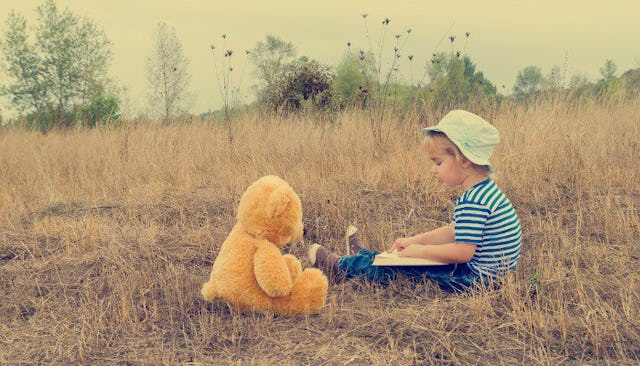5 Ways To Raise A Kind, Empathetic Child

How do you avoid raising a cruel child?
Disclaimer: There isn’t a clear-cut scientific answer. This answer is my interpretation of current ideas that seem to work with preschoolers, based mainly on attachment theory.
Most children, early on, are naturally inclined to be both cruel and kind, but not at the same time—the actions are mutually inhibitory. So in fostering one, we automatically reduce the other.
How do cruelty and kindness develop? Cruelty flows from anger and frustration and confers a feeling of power over others that can be pleasurable. Children aren’t born with effective techniques for emotional self-regulation. When they experience strong negative emotions, they feel they’ve lost control, which is scary, and one way to regain the feeling of control is to be cruel or hurtful.
Kindness flows from empathy, the sense of feeling another’s pain, and creates feelings of nurturing and power that are pleasurable. But empathy involves emotional vulnerability, so a child who feels hurt or threatened is unable to extend empathy until they have developed sophisticated emotional self-regulation.
Children are also hedonists. They seek to recreate situations that have been intrinsically rewarding in the past. Successfully recreating these situations further strengthens the neural pathways that gave rise to them. Over time, some natural behaviors become habitual and others are lost.
So children who repeatedly find they can alleviate their feelings of powerlessness by being cruel, and are not taught alternatives, will come to see cruelty as rewarding generally. Children who are not rewarded for cruelty, but are taught to self-regulate their emotions, and given repeated opportunities to empower themselves through kindness, will become kind.
Lastly, children are born imitators. They love to mimic the behavior they see in high-status role models; it’s almost impossible to stop them. Cruel or kind, the behavior of dominant kids in a preschool will spread like a virus. What can we do with this information? Here are some useful every day parenting practices:
1. Be Kind to Yourself
Take every opportunity to model empathy and kindness, both in your interactions with the child and with third parties.
2. Seek Out Opportunities for Your Child to Practice Empathy and Kindness
And acknowledge it when they do practice empathy and kindness. This will amplify the neural patterns that generate their acts of kindness. Do not, however, provide material rewards for these behaviors, since extrinsic rewards interfere with intrinsic motivation.
3. Foster a Trusting Relationship With Your Child
The safer your child feels with you, the easier it will be for them to regain self-control during conflict.
4. Practice Mindfulness With Your Child
This increases their self-awareness and self-control, both emotionally and physiologically. As they understand how their bodies respond to emotion, their emotions become less frightening, and with practice they learn how to dampen negative emotional responses instead of escalating them.
5. Enjoy Reading Fiction With Your Child
Research shows that reading stories helps children to learn to understand and empathize with different perspectives. Watching TV doesn’t seem to have the same benefits.
Another important aspect of showing your child how to process negative emotions without becoming cruel is to teach them how to respond to cruelty. When you talk about cruelty, you first need to make your child feel safe from their own negative emotions. Don’t punish or reward them. Instead, stay calm, clearly define the problem, and help them to reach a state where they are able to reflect on it. When they express negative feelings hurtfully, do not escalate the conflict, but simply give them a verbal label for what they’re experiencing. For instance, if they say, “I hate you and you’re never coming to my birthday party again!” you can respond calmly with, “It sounds like you’re feeling angry.”
After they’re calm, discuss the feelings of the victim to establish an empathic connection in your child’s mind. This will inhibit the intrinsic brain circuitry that could otherwise reward cruelty and activate the circuitry that rewards nurturing, protective behavior. The next step is to teach your child how to apologize meaningfully.
A meaningful apology requires not only that they acknowledge what they did wrong (self-awareness), but also that they understand why it was wrong (empathy), and they have a plan for how to make amends and change their behavior (self-regulation). When they apologize meaningfully and are forgiven, the child feels safe, connected, and in control, all of which reduces the likelihood of future cruelty.
Be patient. We are training a neural network here; they need a lot of data! If you get angry or punish your child for cruelty, you will scare them, which inhibits empathy and at the same time increases the urge to reassert control through other means, like cruelty. They might inhibit that urge because they’re scared, but they will at the same time become less kind, and perhaps they will express cruelty more when you’re not there to punish them.
This post originally appeared on Quora.
This article was originally published on